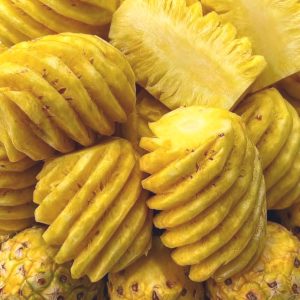
As we age, vision care becomes crucial. Issues like dry eyes, cataracts, and poor night vision affect daily life. While diet helps, it’s key to separate fact from hype. Here are five nutrient-rich leaves that research suggests may support eye health.
1. Nori (Seaweed) – A Source of Omega-3s
Nori contains small amounts of omega-3s, which help keep eyes lubricated. However, claims that it significantly lowers the risk of AMD and cataracts lack strong evidence. For more omega-3s, opt for salmon, sardines, flaxseeds, or chia seeds.
2. Spinach – Natural Protection Against Blue Light

Spinach is rich in lutein and zeaxanthin, two antioxidants known to filter harmful blue light and protect eye tissues. These nutrients may help reduce the risk of cataracts and slow the progression of AMD.
Additionally, spinach provides:
- Vitamin A: Supports corneal health and improves night vision.
- Vitamin C: Strengthens blood vessels in the eyes and helps combat oxidative stress.
- Zinc: Essential for proper retinal function and may help prevent night blindness.
3. Broccoli – A Vision-Boosting Superfood
Broccoli contains a blend of vitamin A, lutein, zeaxanthin, and vitamin C, all of which contribute to eye health.
- Vitamin A aids in pigment production for the retina, improving light absorption and overall vision clarity.
- Vitamin C protects eye tissues from oxidative damage and may help reduce the risk of cataracts.
- Vitamin E and zinc work together to protect against free radical damage, supporting long-term eye health.
Regular consumption of broccoli as part of a balanced diet can support healthy vision over time.
4. Kale – A Shield for the Macula

Kale is another leafy green packed with lutein, zeaxanthin, vitamin A, vitamin C, and zinc.
- Lutein and zeaxanthin help protect the macula from damage caused by blue light and oxidative stress.
- Vitamin C plays a vital role in maintaining the integrity of ocular tissues.
- Vitamin E supports lens health and may reduce the risk of cataracts.
5. Orapronobis (Pereskia Aculeata) – Limited Scientific Evidence

Orapronobis is a lesser-known leafy plant that contains vitamins A, C, and E, as well as zinc and iron. However, there is limited scientific research confirming its specific benefits for eye health. While it may contribute to overall wellness, more studies are needed to validate claims regarding its effects on vision.
Final Thoughts
Eating leafy greens like spinach, kale, and broccoli boosts eye health with essential vitamins and antioxidants. While nori has some omega-3s, fatty fish and seeds are better sources. Orapronobis lacks research-backed benefits.




